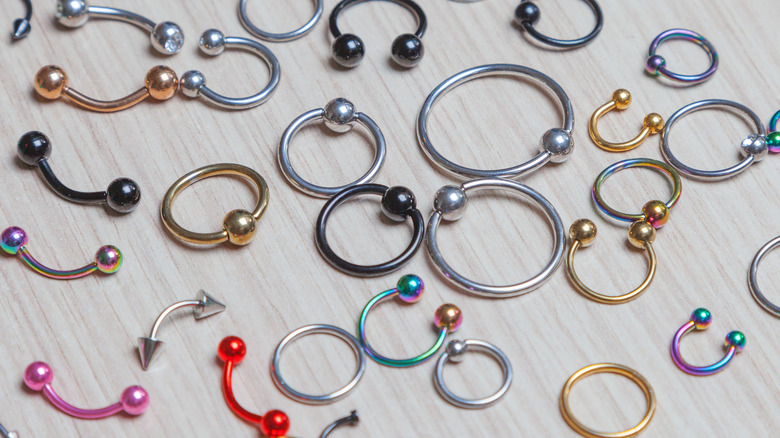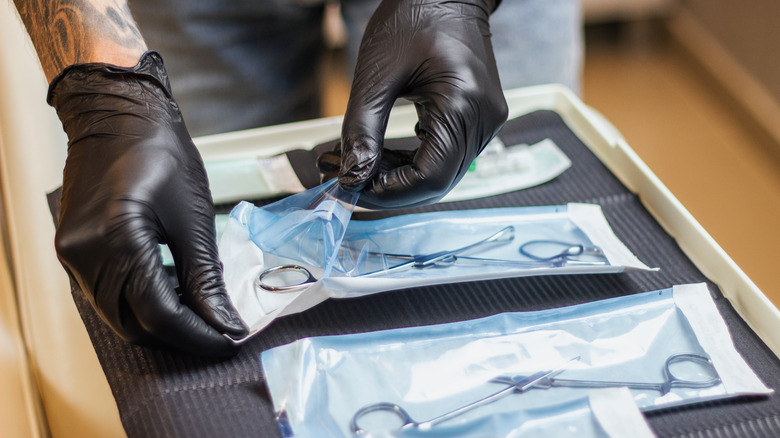Here's Which Piercings Actually Take The Longest To Heal
Body piercings are a creative form of self-expression. Different types of piercings can range from ear piercings to navel piercings, to areas such as the nose, lips, and everything in between. Afterward, piercings require a period of cleaning and healing. When deciding on a new piercing, it's helpful to know how long you can expect that healing process to last.
Let's begin with the piercings that heal the fastest. While your first guess might be the common earlobe piercing, according to piercing experts at Urban Body Jewelry, it's actually the septum piercing that takes first place, requiring as little as one to three months of healing time. This is due to the fact that the skin between your nostrils is so fine that there's not much surface area in need of healing. Following closely behind the septum comes oral piercings. Both the lips and the tongue have the added benefit of bacteria, as the bacteria in our mouths help boost the immune system and the body's natural healing process. Tongue piercings usually take about three to four weeks of recovery time, with the lip taking a bit longer, needing about two to three months of healing time.
Genital piercings are the most sensitive and take longest to heal
In the middle of the list you'll find surface facial piercings and ear piercings (via The Chain Gang). Expect earlobe piercings to take around six to 10 weeks to heal and the eyebrow to need about six to eight weeks.
When it comes to which piercings have the longest healing period, the answer lies a little further south. Our genital region is highly sensitive and therefore will need the longest recovery time. For some, healing can take place within as little as four weeks while for others, the healing process can take the better part of a year (via Urban Body Jewelry). Generally speaking, female genital piercings heal faster than male genital piercings, though this will ultimately depend on the location of the piercing and whether it lies within the inner or outer regions of the genitals.
When caring for your new piercing, you'll want to take precautions to prevent infection. Routine washing is important to keep the area clean of crust or germs. Experts at the Center for Young Women's Health suggest using an antibacterial soap to carefully cleanse the area with warm water and to always wash hands before and after handling. Alternatively, a saline solution can also help to keep the area clean. By practicing proper hygiene, you can keep your new piercing healthy, shiny, and clean.


